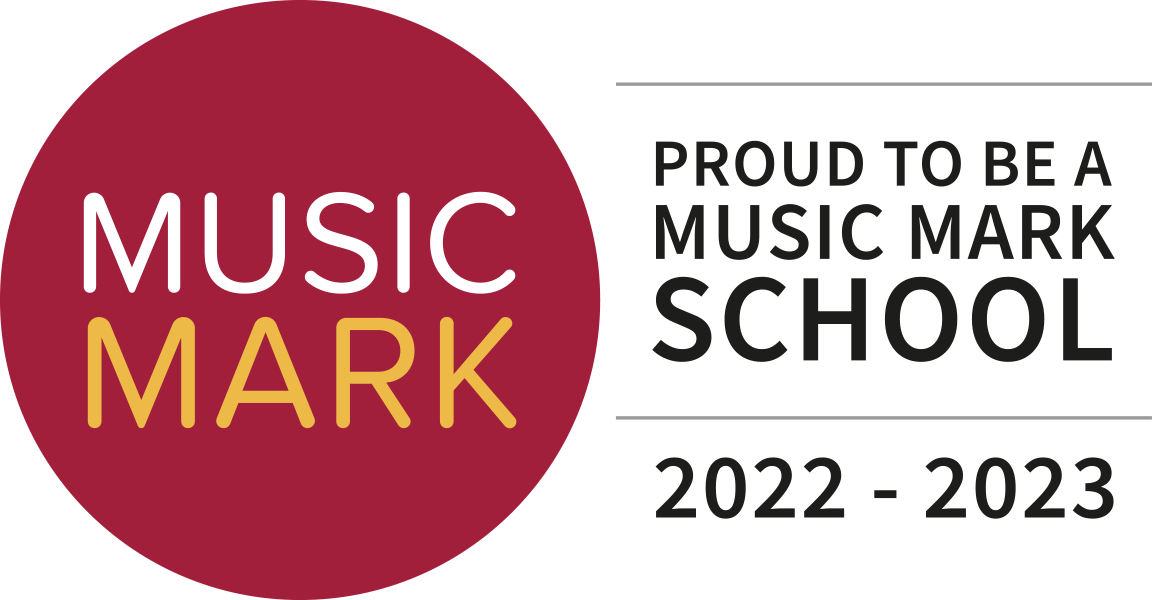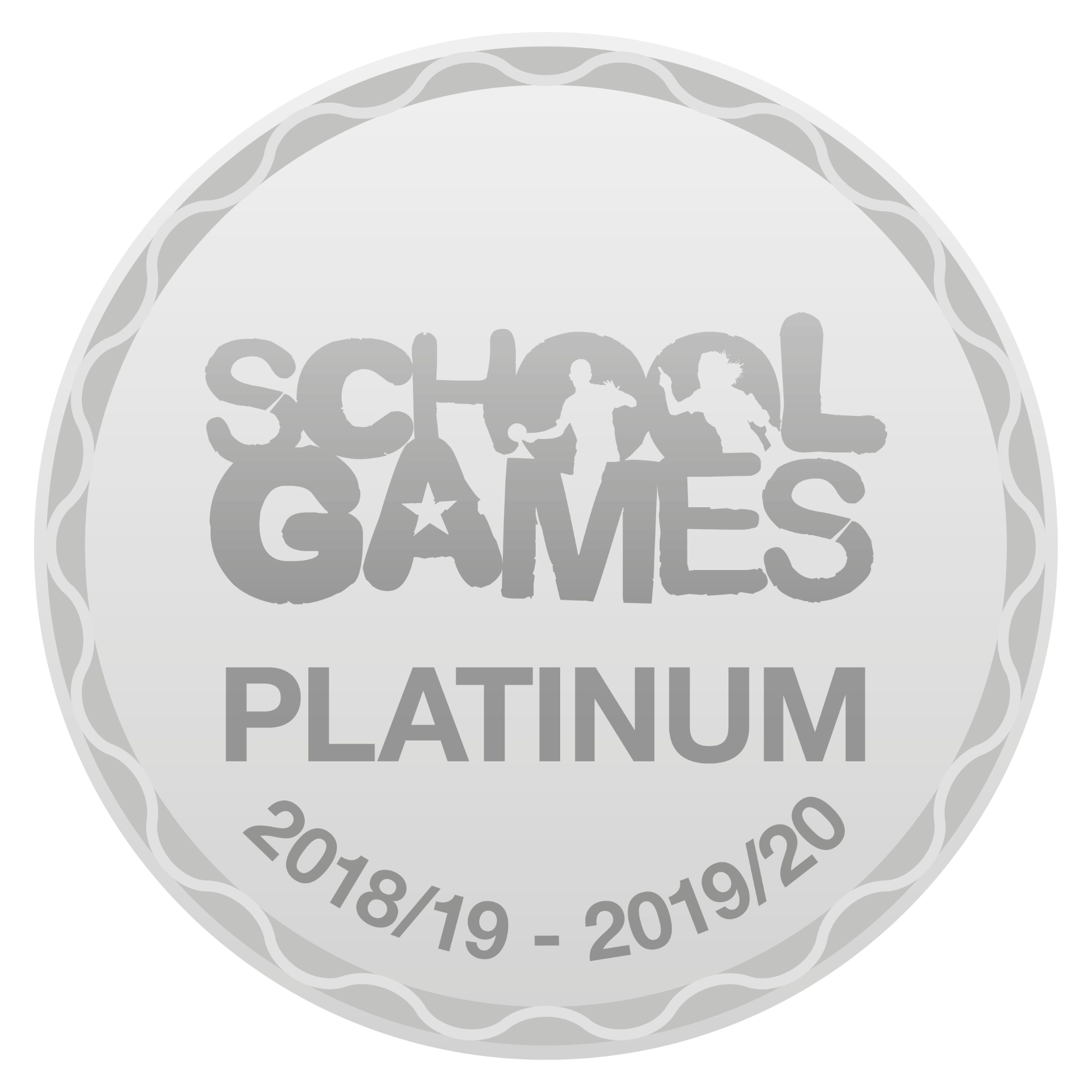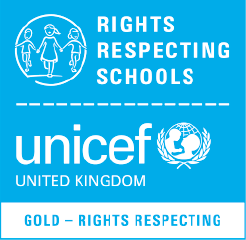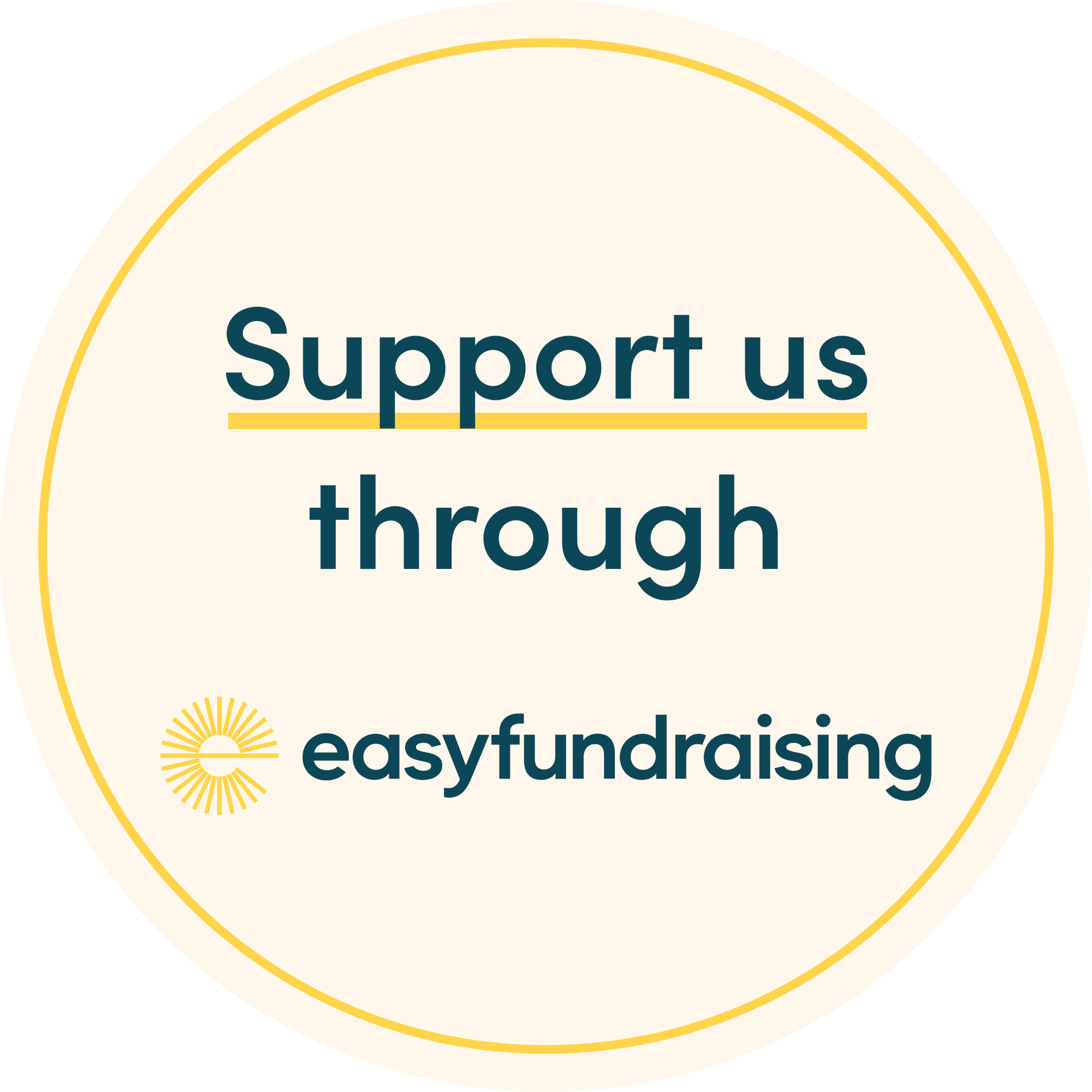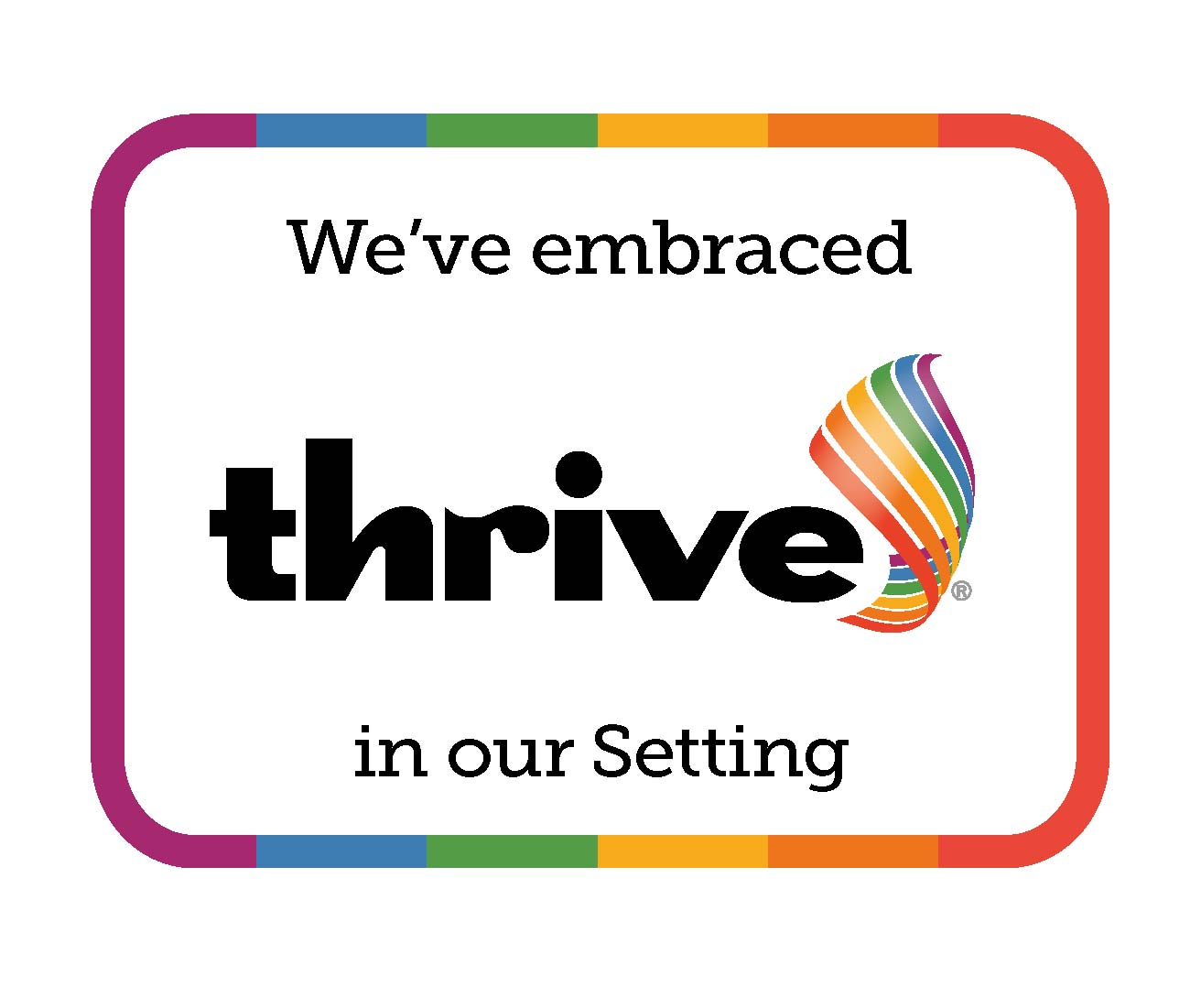Early Learning and EYFS
WHAT IS THE EARLY YEARS FOUNDATION STAGE?
Welcome to the Early Years Foundation Stage (EYFS), which is arguably the most important phase of your child’s learning. The work we do in pre-school and Reception class in school (the Foundation Stage) is regulated through the Statutory Framework for The Early Years Foundation Stage (2017).
We talk about the Early Years Foundation Stage as a phase of learning that helps your child to develop the essential skills that prepare them for their learning journey and enables them to become ‘school ready’. The EYFS starts from when your child is born, and takes them through to the end of the Reception year, when they are 5year-old. We want their early years experience to be happy, exciting and fun. We aim to help your child to feel safe and secure, and to support their individual care and development needs.
WHAT IS THE EYFS FRAMEWORK – WHY DO WE HAVE ONE?
The EYFS Statutory Framework is a legal framework to ensure that all professionals working in the EYFS provide the necessary standards to enable children to develop and grow in a safe and secure environment, where they are provided with appropriate learning opportunities that enable them to make the best possible progress towards the Early Learning Goals. The framework was developed with a number of early years experts and parents.
The latest framework focuses on:
- The Welfare Requirements to keep your child safe
- The areas of learning and development, which guide professionals' engagement with your child's play and activities as they learn new skills and knowledge
- Assessment requirements, that ensure your child makes progress
- Expected levels that your child should reach at age 5, usually the end of the reception year; these expectations are called the ‘Early Learning Goals’ (ELGs)
There is also guidance for the professionals supporting your child on planning the learning activities, and observing and assessing what and how your child is learning and developing.
WHAT DOES IT MEAN FOR ME AS A PARENT?
ENSURING MY CHILD'S SAFETY
Much emphasis is given to making sure that your child is as safe as possible. Within the EYFS there is a set of welfare standards that everyone must follow. These include the numbers of staff required in a nursery, how many children can be cared for in the space available, and things like administering medicines, meeting dietary needs and carrying out risk assessments.
QUALITY
You can find out about the quality of your child's nursery and other early years providers in relation to the EYFS Framework, by checking what the Government's official inspection body for early years, Ofsted, has to say about it. You can find this information at www.ofsted.gov.uk/inspection-reports/find-inspection-report.
HOW MY CHILD WILL BE LEARNING
The EYFS Framework explains how and what your child will be learning to support their overall development.
Your child will be learning skills, acquiring new knowledge and demonstrating their understanding through seven areas of learning and development.
The seven areas are divided into Prime and Specific areas of learning.
Prime areas are essential to ensure that children have the skills they need to access future learning. This is where we concentrate our support, until children are 3 years-old and when they first enter our pre-school, to help them to become confident and feel safe.
These prime areas are essential to ensure that children have the skills they need to access the Specific areas, which link to things they will learn in the future.
Prime areas of learning:
- Communication and language;
- Physical development;
- Personal, social and emotional development.
Specific areas of learning:
- Literacy;
- Mathematics;
- Understanding the world;
- Expressive arts and design.
These seven areas are used to plan learning and activities for your child. We provide suitable, play-based activities that are tailored to your child’s individual interests and learning needs. The activities will help your child to make progress in all of the seven areas of learning.
Children in the EYFS learn by playing and exploring, being active, and through creative and critical thinking. They learn best in their preferred environment and this might be indoors or outdoors, so we are careful to provide your child with opportunities to move freely and choose where they want to be.
The diagram below gives examples of the areas of learning and development and shows the links between the way in which your child learns and what they learn.
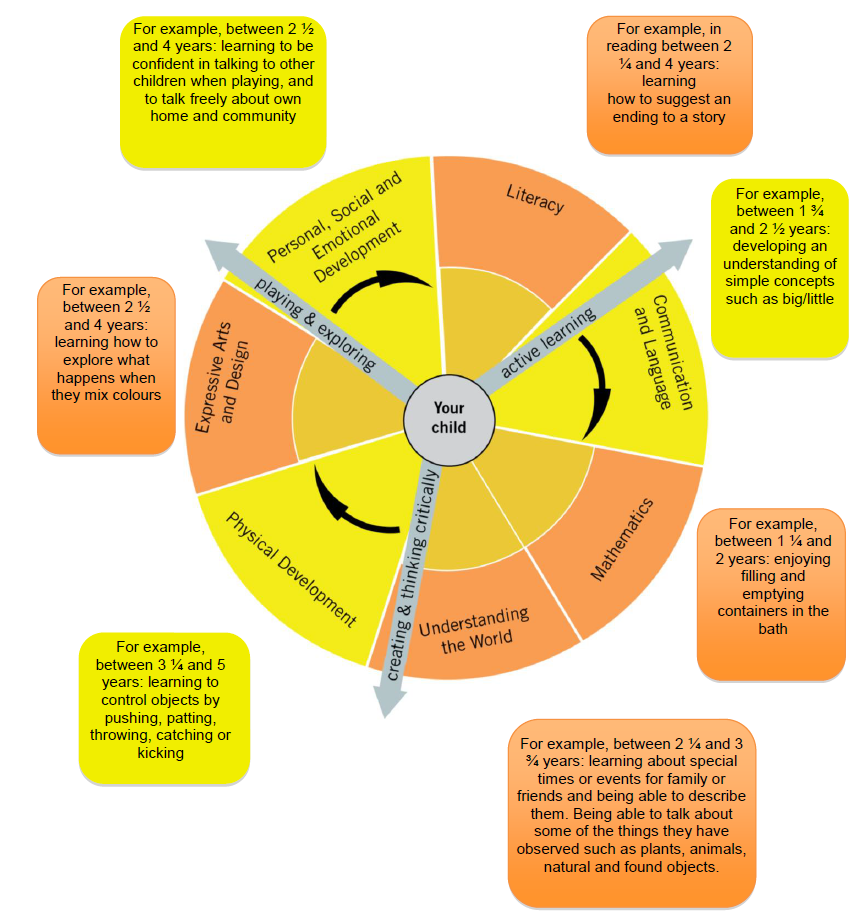
AS A MUM OR DAD, HOW CAN I HELP WITH MY CHILD'S LEARNING?
All the fun activities that you do with your child at home are important in supporting their learning and development, and have a really long lasting effect on your child's learning as they progress through school.
Even when your child is very young and is not yet able to talk, talking to them helps them to learn and understand new words and ideas. If you make the time every day to do some of the following things with your child, it will make a real difference to your child's confidence as a young learner.
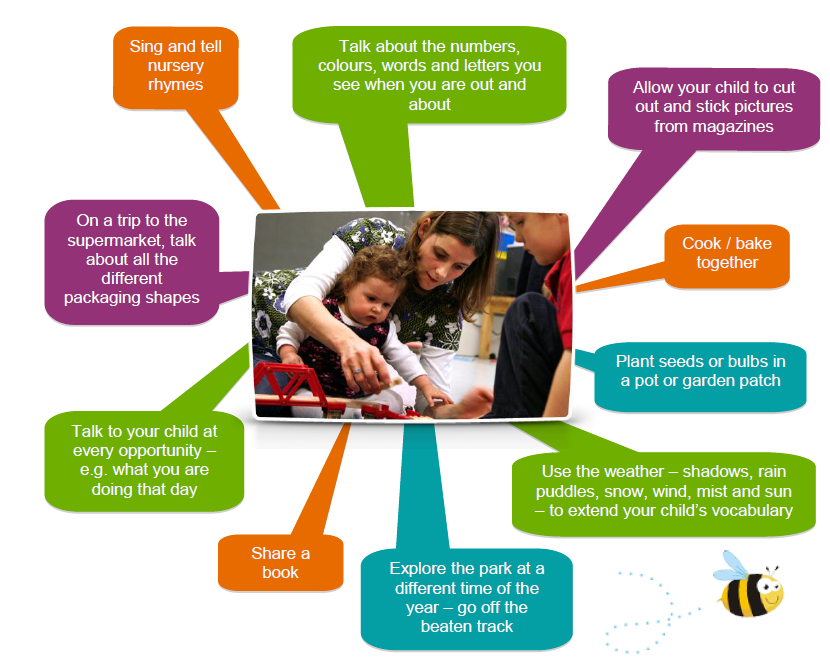
If you're looking for new ideas for things to do, then you can take part in our home learning activities, which will be posted on Tapestry (online learning journal) and also in our Early Learning Newsletter, which is published each month. You can also find out what is on offer at your local children's centre; a copy of the local Toddle magazine is available from our pre-school office on request. There are many opportunities in the community for 'messy play' activities which you and your child can join in with, and many are free. Staff can also give you advice about the kinds of books or other activities your child might enjoy at different ages. You can also join the pre-school lending library, to encourage your child to share their favourite pre-school books at home.
We would love to welcome you to join in with your child in one of our sessions. You can register your interest in becoming a regular or ‘ad-hoc’ volunteer by speaking to your play-partner. We are always looking for volunteers to help out at Forest School, which is an ideal way to support your child in developing new physical skills.
HOW CAN I FIND OUT HOW MY CHILD IS GETTING ON?
It is important that you and the professionals caring for your child work together. You need to feel comfortable about exchanging information and discussing things that will benefit your child. These conversations should be with one of your child’s play-partners. Play-partners are two of our team who work together with a group of children that they call their ‘play family’. Play families have a maximum of 14 children, though the size varies according to the staff shifts and children’s learning needs. The play-partners role is to:
- Provide a main point of contact within the setting on a day-to-day basis, to talk to about your child’s ongoing care and learning needs
- Helps your child to become settled, happy and safe
- Take responsibility for your child's care, development and learning
- Keep note of your child's progress, sharing this with you and giving you ideas about how to help your child to continue their pre-school learning at home
You can get information about your child's development at any time through the Tapestry online learning journal (confidential login provided when you start at the pre-school). We provide you with a written report on their progress at the end of each school year. Each term we will invite you to a Learning and Development Meeting, where you can contribute to your child’s learning journal and speak with your play partner to discuss your child’s learning successes and talk about whether they need any additional support.
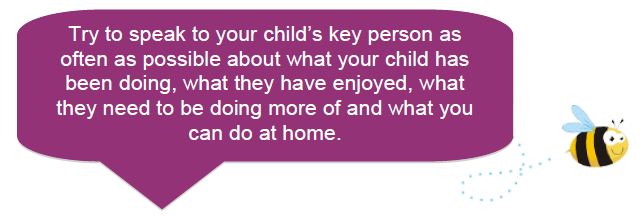
Before you come to pre-school, WHEN YOUR CHILD IS 2
At some point after your child turns 2, the professionals working with your child must give you a written summary of how your child is progressing against the 3 prime areas of learning:
- communication and language;
- physical development; and
- personal, social and emotional development.
This is called the progress check at age 2.
This check will highlight areas where your child is progressing well and whether they might need some extra help or support – and how mums and dads and other family members or carers can work with the key person to help. You might find it useful to share the information from the check with other professionals such as health visitors (who can use it as part of the health and development review).
WHEN YOUR CHILD IS 5
At the end of the EYFS – in the summer term of the reception year in school – your child’s teacher will complete an assessment which is known as the EYFS Profile. This assessment is based on what they, and other staff caring for your child, have observed over a period of time.
Another important part of the EYFS Profile is your knowledge about your child's learning and development, so do let your child's class teacher know about what your child does with you: such as how confident your child is in writing their name, reading and talking about a favourite book, speaking to people your child is not so familiar with or their understanding of numbers.
All of the information collected is used to judge how your child is doing in the 7 areas of learning and development. Finding out at this stage how your child is doing will mean that the teacher your child has in their next school year – year 1 – will know what your child really enjoys doing and does well, as well as helping them decide if your child needs a bit of extra support, what that support should be and if they are already getting it.
The school will give you a report of your child's progress, including information from his or her EYFS Profile.
WHERE CAN I GO FOR FURTHER INFORMATION?
The most important place to find out more is your child's childminder or nursery – do ask as many questions as you need to. Providers really do welcome speaking with you.
You may want to find out what is on offer at your local children's centre.
You can find the Early Years Foundation Stage which includes the early learning goals at www.foundationyears.org.uk The foundation years website also includes a range of resources and contacts.


